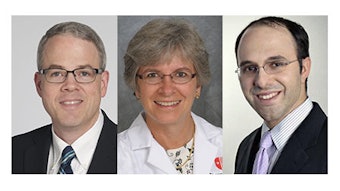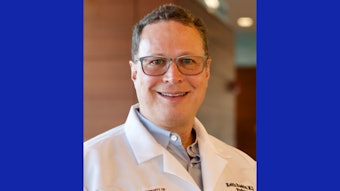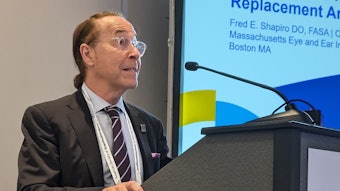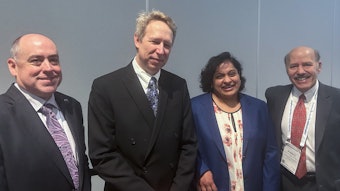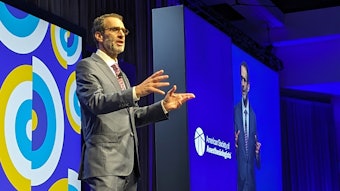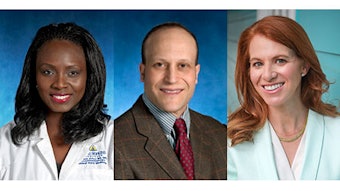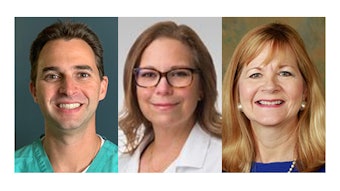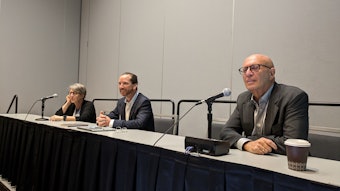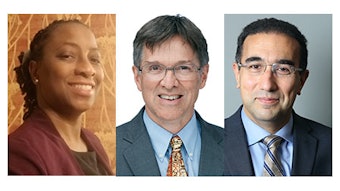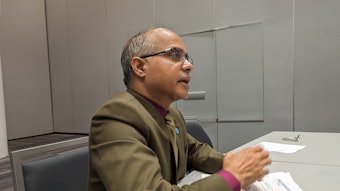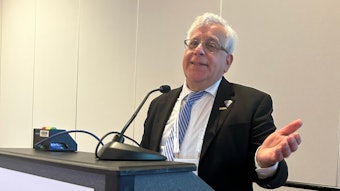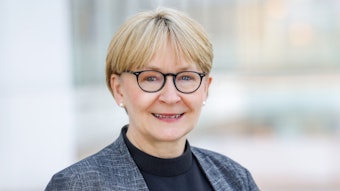An inspirational Q&A with four female medical multihyphenates
Each shares professional and personal challenges, expectations, and advice.
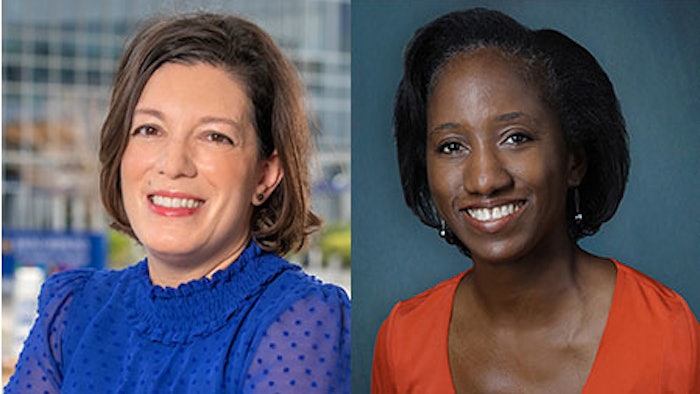
Women are often a minority in many medical fields and nonmedical professions. This fact should make their contributions and perspectives invaluable. The 2023 Snap Talk session, “Women of Impact in Anesthesia in Research,” explored the role of gender and race inside and outside the lab.
Prior to ANESTHESIOLOGY 2023, two of the session’s speakers provided a preview of the wise words and valuable insight they plan to share with attendees: Allison Fernandez, MD, MBA, Associate Professor of Pediatric Anesthesiology at Johns Hopkins All Children’s Hospital in St. Petersburg, Florida, and Dolores Njoku, MD, Pediatric Anesthesiologist-in-Chief at St. Louis Children’s Hospital, Board Chair-Elect of the Foundation for Anesthesia Education and Research (FAER), and President-Elect of the Association of University Anesthesiologists (AUA).
What makes your viewpoint unique?
Dr. Fernandez: Women experience many challenges and phases of the human life cycle during their career in anesthesiology. I, myself, am a mother and wife in addition to being a physician and researcher. I will pull from my own experience as physician-researcher-mother-wife as well as the “Women of Impact in Anesthesiology” video series that I host and developed with ASA.
Dr. Njoku: I will talk about the differences in managing and funding a research lab and where to find resources to help you get started. I will attempt to demystify the process that includes, but is not limited to, NIH and foundation sources for anesthesiologists. I will also highlight the critical role of collaboration in maintaining focus and relevance.
What are the biggest barriers to overcoming gender and race limitations in research, authorship, and academic leadership?
Dr. Fernandez: The barriers are multifactorial – some are personal while others are systemic. It’s very important to be supported emotionally, academically, and financially by your family and your work family. Without this support, it is very challenging to participate in academic endeavors.
Dr. Njoku: In my opinion, it is hard to determine because it can be multifactorial and individual. Finding a research home can be difficult if you are not already in a scientist track; authorship and pathways to leadership can also be less defined. The biggest challenge is to find a nurturing environment where you can thrive. You also have to believe that you are unlimited and believe in hard work.
Have women’s roles in this space become better, worse, or stayed the same in recent years?
Dr. Fernandez: According to the literature, it has improved in the last 10 years in terms of scholarly activity and academic promotion, but there is still room for improvement.
Dr. Njoku: I believe the numbers say that there are more women in research. However, when you break down the numbers by race, it is less encouraging. In certain topic areas, race and gender thrive. My hope is that good scientific research will be able to thrive no matter the topic area, no matter the scientist.
Why is it critical for women and women of color to be equally represented in these areas?
Dr. Fernandez: Diversity in the workforce is important because it generates better ideas and solutions. It is also important for our patients to see themselves in our workforce; it creates increased trust and influences the next generation to pursue these careers.
Dr. Njoku: It is my opinion that these are areas where fewer people in general may enter. Therefore, it is important that children and adults see diverse representation so as not to inadvertently attach a career path with a race or gender.
What is one piece of advice for attendees that you wish you had upon entering the field of research?
Dr. Fernandez: Take your time to find your area of interest and align yourself with people in and outside of your institution to mentor and sponsor you. Also, your interests may change over time, and that is OK.
Dr. Njoku: It is a marathon and not a 60-yard dash.
What key point(s) would you like attendees to take away from this session?
Dr. Fernandez: Everyone can have a different path in their career and still be successful.
Dr. Njoku: I would like them to have a tangible approach to funding and have sources for learning how to manage their labs as well as their academic career. I would also like them to feel encouraged and inspired to do a not-so-easy thing.
The “Women of Impact in Anesthesia in Research” panel also included Vidya Raman, MD, MBA, FAAP, FASA, and Paloma Toledo, MD, MPH. All four panelists have published in the funded and nonfunded arena in clinical and basic science research in anesthesia.
